US and Canadian fighter jets intercepted two Russian Tupolev TU-95 bombers and two Chinese Xi’an H-6 bombers late Wednesday near US territory in Alaska. This encounter marks a chilling escalation towards potential global conflict as the warplanes approached closely to US airspace.
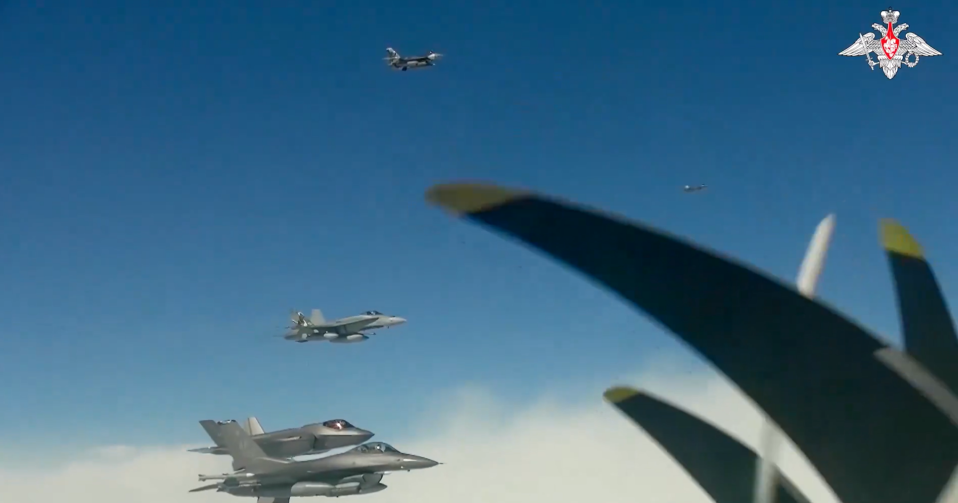
The Russian bombers were accompanied by Russian Su-30 and Su-35 fighters, which provided cover and appeared to be attempting to provoke a response from US forces. The presence of these advanced fighter jets highlights the coordination and strategic intent behind the mission.
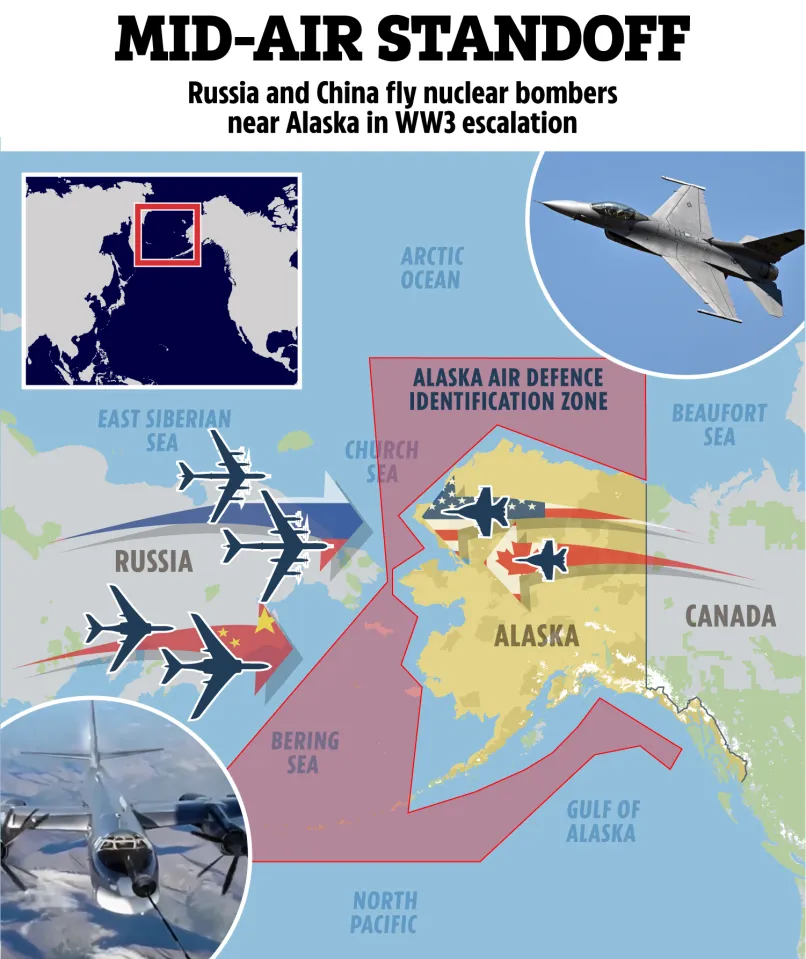
The North American Aerospace Defense Command (Norad) detected, tracked, and intercepted the bombers using a combination of satellite and radar technology. Norad confirmed that the four bombers remained within the Alaskan air defense identification zone (ADIZ) but did not enter US or Canadian sovereign airspace. The ADIZ is a self-declared buffer zone in international airspace where nations monitor flight movements to ensure security and preparedness against potential threats.
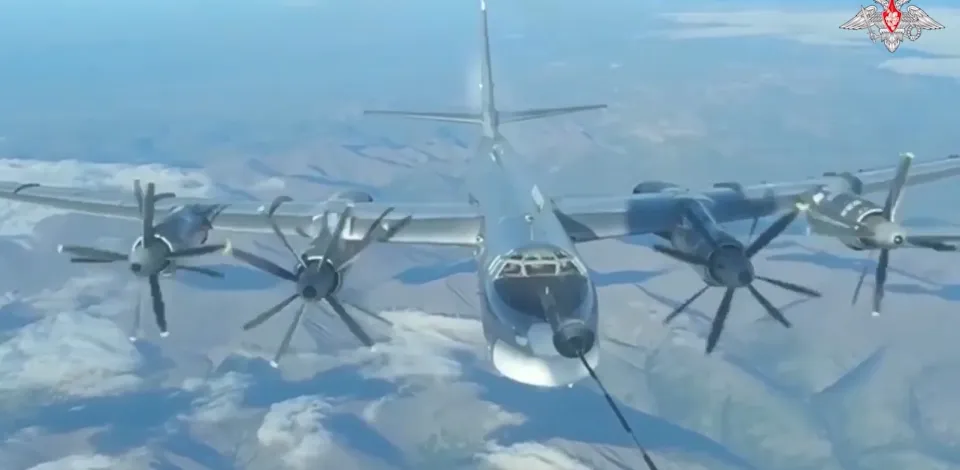
The US and Canadian response involved deploying multiple fighter jets, including F-35s, F-16s, and F-18s. These aircraft flew sorties to intercept and escort the Russian and Chinese bombers, ensuring they did not breach further into restricted airspace.
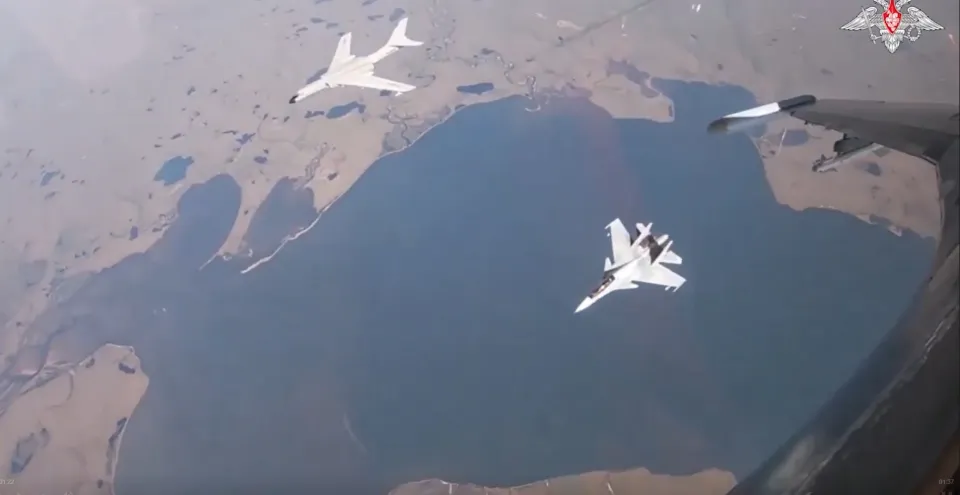
Norad stated, “The four bombers did not present a threat as they remained in international airspace within the ADIZ.” Despite this, the joint patrol by Russian and Chinese bombers is seen as a provocative act, demonstrating the growing military partnership between the two nations. This show of force is particularly concerning for western capitals already wary of the deepening ties between Russia and China.
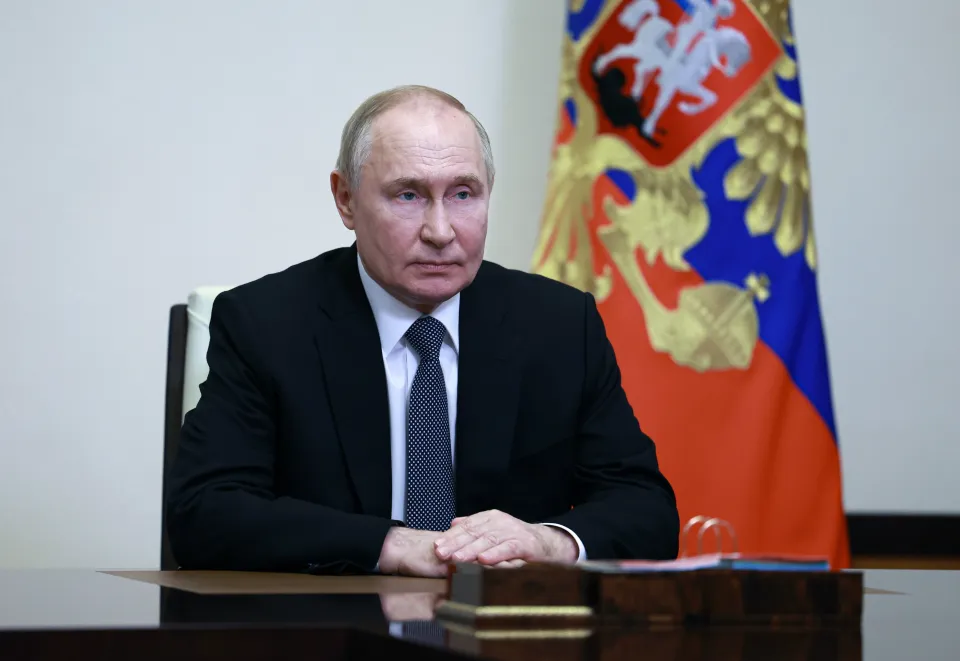
Russia’s defense ministry described the five-hour joint patrol as taking place in a “new area of joint action.” They emphasized that the operation was conducted strictly in accordance with international legal statutes, ensuring no violation of foreign airspace. The statement aimed to downplay the provocative nature of the patrol, asserting compliance with international norms.
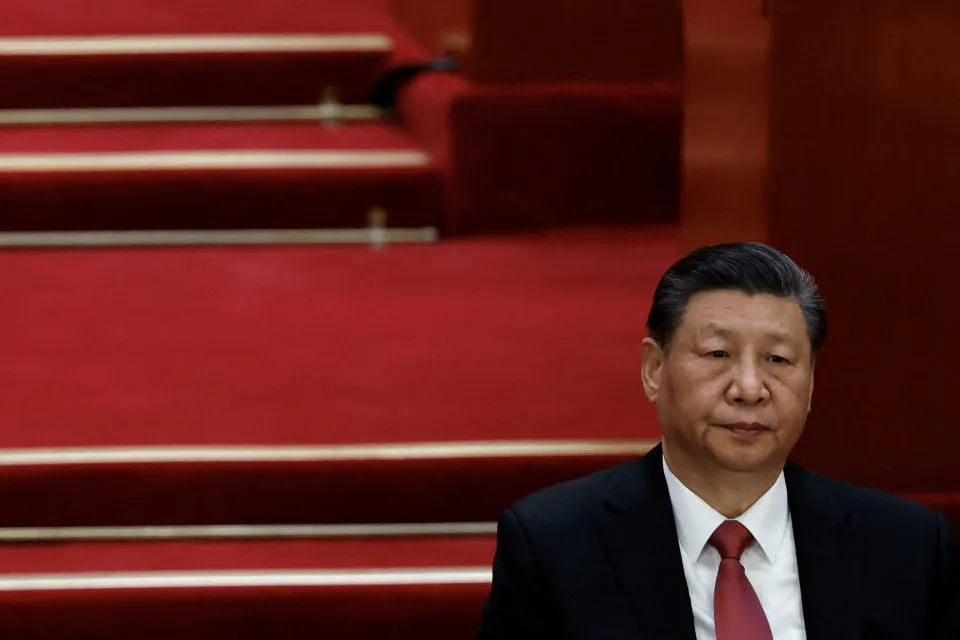
A Chinese government spokesperson reiterated this position, stating that the patrols were routine and “had nothing to do with the current international situation” and were “not aimed at any third party.” This response seeks to defuse potential tensions arising from the operation, suggesting that the maneuver was not intended to escalate conflicts with other nations.
Credit: the-sun.com



